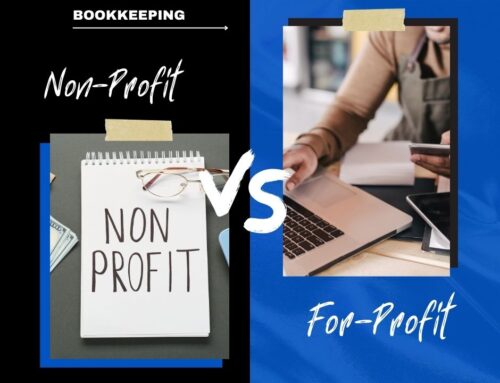Small business owners face new challenges daily. Efficient bookkeeping and accounting processes are at the top of the list.
As a small business owner who wears multiple hats, it can be difficult for you to manage every aspect of your business.
In my experience, it seems like owners spend more time focusing on sales, marketing, and managing customer relationships then they do on their company’s finances. But without accurate bookkeeping, the rest of your business can suffer as well.
In short, bookkeeping is the process of recording and analyzing your company’s finances. Any bookkeeping mistakes can lead to missed income or unnecessary losses.
You can’t fix an inefficiency until it’s been identified, which was my inspiration for writing this guide. I’ve outlined the most common bookkeeping challenges faced by small businesses. I’ll also explain how you can overcome them.
1. Cash Flow
According to Business Insider, 82% of small businesses fail because they experience cash flow problems. In order to properly manage your cash flow, you need to keep a close eye on your accounts receivables and accounts payables.
I’ve seen so many small business owners that simply look at their checking account balance and see a number that they think is suitable. But you also need to:
- Know your breakeven point
- Keep extra cash on reserve
- Collect receivables
- Extend payables
- Constantly monitor cash flow
- Audit your inventory
- Collect deposits
All these elements stem from your bookkeeping department. For a more in-depth analysis on this, refer to my guide on cash flow management tips for small businesses.
2. Delayed Receivables
Another major bookkeeping problem that small business face daily is managing their receivables. Depending on the type of business you have, you might be performing work and not getting paid for extended periods of time.
Don’t fall into a cycle that you can’t get out of. Clients that pay late or don’t pay at all can be the downfall of your business.
The way to overcome this challenge is by diligently tracking your receivables. Establish effective invoicing habits.
Follow up with unpaid invoices. Include due dates and impose late fees for bills that aren’t paid on time. You can even leverage software for automated billing and follow-ups.
3. Delayed Payables
In addition to collecting what’s owed to you by your customers, you also need to make sure that you’re paying what you owe to vendors.
Delayed payables are another crucial problem for small business owners.
For starters, you don’t want to develop a reputation for not paying or being late with payments. But aside from that, delayed payables can lead to more serious problems, like incurring late fees or having deliveries withheld.
Lots of times, small business owners don’t intentionally delay their payables. They just don’t have a system in place for tracking and paying bills.
These responsibilities should fall on your bookkeeper. Paying your bills on time is just as important as collecting invoices.
4. Payroll Management
According to a recent study, roughly 40% of small business owners incur IRS penalties due to payroll errors.
As a small business, you don’t have the luxury of having a separate department to manage your payroll. You may not have an HR department either.
Handling all of this on your own can be overwhelming, which is why it’s a good practice for small business owners to delegate payroll management to their bookkeepers. You can also take advantage of bookkeeping software with payroll management built in.
5. Tax Preparation
Your small business needs to pay taxes. However, so many small business owners out there have problems meeting their tax demands.
Missed quarterly estimates, under withholding, missed deductions, and improper filing are just a handful of examples that fall into this category. Even nonprofit organizations need to make sure that paperwork is filed correctly for their exemption status.
Your taxes, like nearly every aspect of your finances, stem from the company’s bookkeeping process. Inaccurate bookkeeping will lead to inaccurate tax preparation, which can get you in trouble with the IRS.
Some of you might even be overpaying on your taxes because of bookkeeping errors, which is why finding someone to properly manage your books needs to be a priority.
6. Tracking Expenses
Keeping track of paper receipts, digital invoices, and recurring expenses can be challenging for small business owners. Without a proper system in place, accurately keeping track of your expenses can be nearly impossible.
You shouldn’t be digging through your car or desk drawers at the end of the month looking for a faded and crumpled piece of paper. That’s not effective.
Plus, some of you have employees with expense accounts that need to be reimbursed as well.
Falling behind on expense management can turn into a nightmare. The easiest way to track your expenses is with technology. Tools like Expensify made my list of the top innovative technologies to streamline your business’ bookkeeping. It’s a great way to simplify the process of tracking your expenses.
7. Reconciliation
Without an effective bookkeeping process, closing your books can be an extremely daunting task. It’s very easy for you to make a mistake that can lead to inaccurate calculations.
If there are mistakes in your books, it will cause misleading information in your financial reports. That’s a major problem since you’ll be using those reports to make forecasts and decisions about your business.
Inaccurate financial reporting is also a problem if you’re showing those reports to a board, investors, or lenders.
Your books need to be reconciled on a regular basis. Waiting months to do this will just increase the chances that you’ll miss something or make a mistake.
8. Fraud
Small business owners place a great deal of trust in their employees. But unfortunately, some people out there will take advantage of that trust.
According to a recent study published by the Business Fraud Prevention Organization, small businesses have the highest frequency of fraud compared to larger companies.
Some of the most common fraud cases include:
- Payroll schemes
- Cash larceny
- Inventory theft
- Expense reimbursement schemes
- Check tampering
To prevent fraud, you need to establish consistency and transparency in your accounting department. Have someone oversee the books, like a controller, to set up a checks and balances system. Run internal audits on a regular basis. Make sure everyone is held accountable.
Conclusion
The best and easiest way to overcome small business bookkeeping challenges is by selecting the right bookkeeper. Outsourced bookkeeping services are an appealing option, as opposed to hiring a full-time in-house employee.
As a small business owner, you can’t manage your entire accounting department on your own.
Tasks and responsibilities need to be delegated accordingly. By outsourcing a professional bookkeeper, you’ll be able to focus your efforts on other areas of your business, while simultaneously improving the efficiencies of your finance department.





